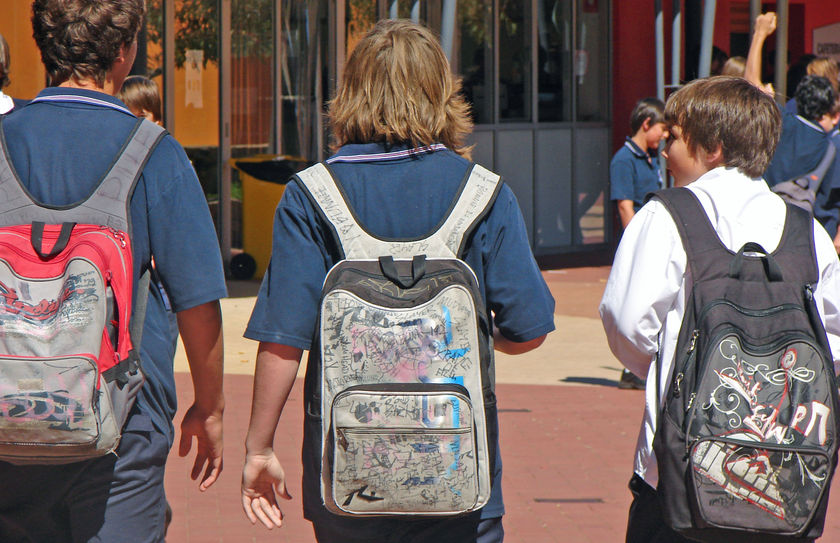Need Pennsylvania news? We have you covered! PAMatters.com has partnered with Radio Pennsylvania to provide you with the stories that matter.
Governor Tom Corbett on property taxes in Pennsylvania
/in Ask the Governor, Media, News, Video /by PAMattersGovernor Tom Corbett on his relationship with the media
/in Ask the Governor, Media, News, Video /by PAMattersGovernor Tom Corbett on the death penalty in Pennsylvania
/in Ask the Governor, Media, News, Video /by PAMattersobject width=”560″ height=”345″>
Governor Tom Corbett on proposed welfare spending cuts
/in Ask the Governor, Media, News, Video /by PAMattersGovernor Tom Corbett on using a revenue surplus to ease the budget pain
/in Ask the Governor, Media, News, Video /by PAMattersGovernor Tom Corbett on his budget plan that many people aren’t too pleased with.
/in Ask the Governor, Media, News, Video /by PAMatters<object width=”560″ height=”345″><param name=”movie” value=”http://www.youtube.com/v/V6_g5GdV638?version=3&hl=en_US”></param><param name=”allowFullScreen” value=”true”></param><param name=”allowscriptaccess” value=”always”></param><embed src=”http://www.youtube.com/v/V6_g5GdV638?version=3&hl=en_US” type=”application/x-shockwave-flash” width=”560″ height=”345″ allowscriptaccess=”always” allowfullscreen=”true”></embed></object>
Report Ranks PA 20th for Child Well-Being
/in News /by PAMattersThe new “Kids Count” data book from the Annie E. Casey Foundation ranks Pennsylvania 20th among states for children’s health and overall well-being. That may be an improvement over PA’s previous ranking of 23, but it’s not all good news. “The poverty rate for children in Pennsylvania is now 17%,” says Patrick McCarthy, President and CEO of the Annie E. Casey Foundation. “That was an increase in Pennsylvania, compared to the year 2000, of 13%.”
McCarthy says Pennsylvania is generally following national patterns in which the five health indicators are headed in the right direction, and the five economic indicators are headed in the wrong direction. Two indicators in particular alarm Joan Benso, President and CEO of PA Partnerships for Children. “The number of teenagers who are not in school and not working, and the number of children living with at least one unemployed parent jump out at us as indicators that we need to really address and do more to help families overcome,” Benso says.
Data contained in the “Kids Count” report show that 10% of Pennsylvania children have at least one unemployed parent, and 8% of PA teens are neither attending school nor working. Both numbers are slightly lower than the national averages of 11 and 9%, respectively.
Benso says the report demonstrates the need for an aggressive strategy to reengage Pennsylvania’s dropouts, so that they can become productive members of the workforce. She adds that now is not the time to reduce funding for programs that help kids develop.
State House Committee Hears Testimony on Open Workforce Bills
/in News /by PAMattersA State House Committee heard testimony on four bills in the open workforce initiative. Representative Daryl Metcalfe (R-Butler), sponsor of the Right to Work bill, says it’s a basic issue of individual liberty. He told the state House Labor and Industry committee that Pennsylvania, without such a law, encourages coercive union practices in the public and private sectors. Metcalfe says the bills would put the power back into the hands of the employees. The bills would eliminate the authority of unions to collect dues from non-members.
Rick Bloomingdale, President of the Pennsylvania AFL CIO, called the bills an effort to weaken collective bargaining. He says the legislation would give an advantage to the employer, harm workers and their families and block Pennsylvania’s economic recovery.
Abe Amoros, Pa legislative Director of the Laborers’ International Union of North America, echoed those concerns. He told the panel the bills do nothing but hurt working people and their families. He says they’re not based on sound and logical business practices.
Representative Bill Keller (D-Phila) thinks it’s an issue of fairness. He said if you’re being represented and you’re making a good wage and receiving good benefits, you should pay at least your fair share to the collective bargaining that gets that done for you.
But Representative Scott Boyd (R-Lancaster) says there are people who don’t want to belong to unions. He points to some teachers who have confided in him that they really don’t want to be in the union.
Representative Fred Keller (R-Union) posed a question to Abe Amoros and Rick Bloomingdale, asking them if they believe unions have a good product to offer. When both answered “yes”, he said if their product is that good, he fails to understand why we need to compulse people to purchase it.
Survey Finds Obesity, Drug Abuse are Top Kids Health Concerns for Adults
/in News /by PAMattersThe University of Michigan’s C. S. Mott Children’s Hospital National Poll of Children’s Health has issued its fifth annual survey. The poll ranks the top ten concerns and finds childhood obesity and drug abuse tied at 33% followed by smoking and tobacco use, teen pregnancy, bullying, Internet safety, stress, alcohol abuse, driving accidents and sexting.
Dr. Matthew Davis is director of the poll. He says childhood obesity has been at the top of the list for several years running, but now drug abuse has joined it as a top health concern. He says compared to the mid-1990s, drug abuse is substantially less. But he says in the last few years , the use of marijuana and other drugs has started creeping up again among youth, and this is a concern to the public.
Dr. Davis says public health and school campaigns have made a dent in youth smoking, but the public remains very concerned about tobacco use among youth.
Dr. Davis says when something is as widely available as the Internet or cell phones, parents need to grapple with what the risks can be from the new technologies. He adds others are also concerned about Internet safety and sexting.
For African Americans, gun related injuries, school violence and unsafe neighborhoods replaced bullying, internet safety and stress on the list. Hispanic adults listed child abuse and neglect as a top ten concern and sexting did not make their list.
Dr. Davis says it’s important that those in the medical, public health and public policy communities recognize how people from different backgrounds are seeing these problems. He says if they’re getting a sense of what’s most important to people, they can focus their prevention efforts in those areas.
Welcome to PAMatters.com, a new source for news and commentary from Pennsylvania’s capital. In addition to video, audio and pictures from the stories and events that affect YOU, you’ll also get some behind-the-scenes analysis via blogs from our award-winning staff of journalists.





